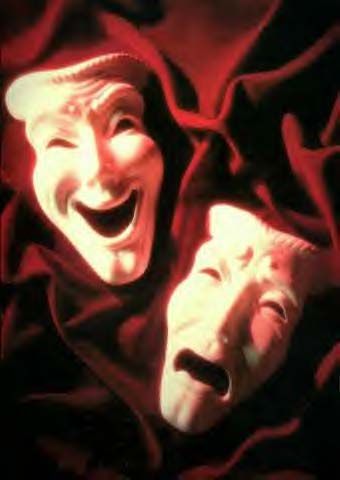Corruption, Truth-Telling, and Liminal Social Drama
Telling the truth very often has negative short-term consequences for the truth-teller. It is very dangerous to tell the truth in our culture.
Corruption is a good example. Being a whistle-blower in the face of corruption is a risky business. The story of Jeffrey Wigand is a classic example.
Corruption is one of a dozen ineradicable scourges that afflicts civilization: Conflict, Violence, Oppression, Injustice, Corruption, Poverty, Ignorance, Alienation, Abuse, Despair, Suffering, and Terrorism.
These twelve intractable problems all have a similar etiology — they are self-seeding, self-regenerating cancers on the culture.
In mathematical terms, they are all examples of problems in recursion. That is to say, any one instance of the problem tends to produce additional future instances, through the process of mimesis, whereby the culture mindlessly xeroxes whatever processes are inherent in the prevailing culture, without regard for philosophical arguments of morality, ethics, or negative long-term consequences.
If you delve into the mathematical structure of problems in recursion, they are often mind-boggling, but not entirely intractable. However, their solution typically requires a level of mathematical sophistication typically found only in graduate level studies. That's why I say these problems are soluble in theory, but not in practice. Since one of the systemic problems in our culture is (stubborn and willful) Ignorance, it is nigh impossible to educate the Body Politic to a level sufficient to solve any of those systemic problems.
Incidentally, the first systems thinkers to address these problems were the founders of the world's great religions. Moses, Buddha, Jesus, and Lao Tsu (among others) introduced teachings that concord with the systems theoretic model of the mathematical solution to such problems as Conflict, Violence, Oppression, Injustice, and Suffering when they are analyzed as mathematical problems in recursion.
Conflict, under tightly organized rules, is called a Game, and there is a branch of applied mathematics that examines the Theory of Games. Under more loosely organized constraints, Conflict morphs into Drama, and the applicable analytical model of the Governing Dynamics morphs into Drama Theory. While it is theoretically possible to craft a drama that runs to comedy, the default outcome of Liminal Socio-Political Drama, in the face of Ignorance, runs to tragedy.


Corruption is a good example. Being a whistle-blower in the face of corruption is a risky business. The story of Jeffrey Wigand is a classic example.
Corruption is one of a dozen ineradicable scourges that afflicts civilization: Conflict, Violence, Oppression, Injustice, Corruption, Poverty, Ignorance, Alienation, Abuse, Despair, Suffering, and Terrorism.
These twelve intractable problems all have a similar etiology — they are self-seeding, self-regenerating cancers on the culture.
In mathematical terms, they are all examples of problems in recursion. That is to say, any one instance of the problem tends to produce additional future instances, through the process of mimesis, whereby the culture mindlessly xeroxes whatever processes are inherent in the prevailing culture, without regard for philosophical arguments of morality, ethics, or negative long-term consequences.
If you delve into the mathematical structure of problems in recursion, they are often mind-boggling, but not entirely intractable. However, their solution typically requires a level of mathematical sophistication typically found only in graduate level studies. That's why I say these problems are soluble in theory, but not in practice. Since one of the systemic problems in our culture is (stubborn and willful) Ignorance, it is nigh impossible to educate the Body Politic to a level sufficient to solve any of those systemic problems.
Incidentally, the first systems thinkers to address these problems were the founders of the world's great religions. Moses, Buddha, Jesus, and Lao Tsu (among others) introduced teachings that concord with the systems theoretic model of the mathematical solution to such problems as Conflict, Violence, Oppression, Injustice, and Suffering when they are analyzed as mathematical problems in recursion.
Conflict, under tightly organized rules, is called a Game, and there is a branch of applied mathematics that examines the Theory of Games. Under more loosely organized constraints, Conflict morphs into Drama, and the applicable analytical model of the Governing Dynamics morphs into Drama Theory. While it is theoretically possible to craft a drama that runs to comedy, the default outcome of Liminal Socio-Political Drama, in the face of Ignorance, runs to tragedy.





0 Comments:
Post a Comment
<< Home